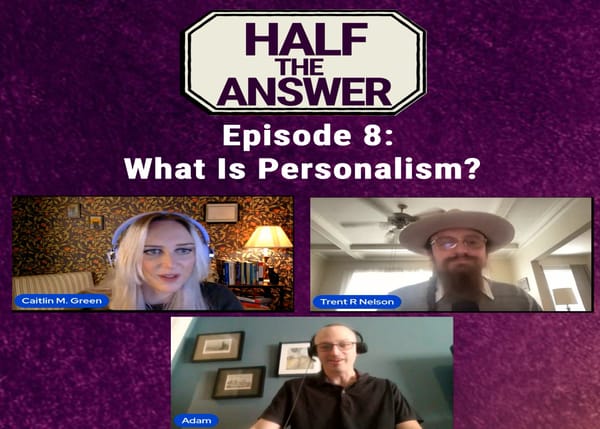Sorry, Pepsi Haters, But Social Justice Needs Capitalism

Last week’s backlash to the Pepsi ad featuring Kendall Jenner and an army of hipster-looking protesters was fast and fierce. Accused of “co-opting the resistance,” and insensitivity to movements like Black Lives Matter, Pepsi was forced to pull the ad within 24 hours.
The irony of the fiasco is that Pepsi was repping social justice long before it was cool — and forged real progressive change along the way. But in their haste to build a firewall between social justice and corporate capitalism, Pepsi’s haters have missed the ways in which the two are not merely compatible, but in many ways mutually reinforcing.
More Woke Than Coke
Flashback to 1940, just a couple years after Walter S. Mack Jr. assumed the reins as CEO of Pepsi-Cola Company. At the time, Pepsi was struggling in the shadow of the Coca-Cola behemoth, whose sales outnumbered Pepsi’s twenty-five to one. But Mack, who described himself as “an unrepentant capitalist and a liberal,” was up for a fight.

In the pre-civil rights era, companies like Coca-Cola systematically refrained from advertising to African-American populations. Mack’s insight was to see this as an opportunity, not just to make money, but to break down barriers. Risking a backlash from white conservatives, he built an all-black team of sales representatives who traveled across the country, often riding on segregated trains or in private cars that shielded them from harassment.
World War II’s sugar rations forced Pepsi into hiatus, but when the war economy subsided Mack got back at it. In 1947, he hired Edward F. Boyd, an African-American adman who later became known as one of the fathers of niche-marketing. Boyd crafted ads for Pepsi that celebrated black cultural and professional achievements, and above all portrayed African-Americans as normal, middle-class consumers. It was this marketing push that ultimately drove Pepsi’s rise to the number two soda company in America.
The Highest Common Denominator
While today we cringe at the bourgie-bohemian protesters in Pepsi’s protest ad, in the not-so-distant past being portrayed as bourgeois conferred dignity and legitimacy. After all, the opposite of marginalized is mainstream. Thus the mainstreaming power of commercialization has the salutary effect of extending social recognition to non-traditional groups.
Commerce supports diversity, not just in terms of the varieties of products and services that are produced, but also the lifestyle, ethnic, and cultural demographics that are catered to. This shows up in Pepsi’s ad through its multicultural cast, a style of advertisement that even has a name: “the total market approach.” Instead of segmenting consumers, like the niche strategy employed by Pepsi in its early years, a total market strategy focuses on a pro-unity theme that integrates many market segments at once. Ads that use total marketing can feel generic — Pepsi’s protestors carry banal signs that read “Peace” and “Join the conversation” — yet the genericness is the point. Appealing to multiple groups at once requires finding a common denominator, the highest of which is social justice.
Who could forget Coca-Cola’s 2014 Super Bowl ad featuring America The Beautiful sung in seven languages? It also caused a backlash, but that didn’t stop Coca-Cola from reprising it for Super Bowl 51. Some conservatives took to Twitter to call for a Coke boycott, offended by the idea that American patriotism can translate into Arabic, but many more viewers found it downright inspiring.
https://www.youtube.com/watch?v=LZmOYNOXqcU
My recent favorite in this genre is an ad by the Canadian beer company, Molson. In the ad, a beer fridge is set up somewhere in downtown Toronto, with a digital lock that only opens after Molson’s famous slogan “I am Canadian” is uttered in six different languages. With a foreign born population of 50%, it doesn’t take long for the Torontonians that pass by to crack the lock, and celebrate multiculturalism with some public intoxication.
Social Justice as an Intangible Asset
Years after Pepsi bubbled to the top of the soda industry on a strategy of black inclusion, the car company, Subaru, reversed their mid-’90s economic decline by leveraging niche marketing to lesbians. In the days of “Don’t Ask, Don’t Tell,” direct marketing to a gay demographic was rare for a major corporation, much less an automaker. So to avoid persecution, Subaru hid esoteric hints in their ads, a marketing technique later dubbed “gay vague.” The subtextual hints would resonate with lesbian consumers, but go undetected by everyone else. “It’s Not a Choice. It’s the Way We Were Built,” one ad reads, ostensibly in reference to the Subaru Outback’s superior all-wheel drive.

Twenty years later, and Amazon’s first hit television series is about a middle-age man’s transition to being a woman, no subtext required. Or as a recent Bud Light ad put it, “labels belong on beer, not people.”
The social justice orientation of corporations is no accident. Corporations, especially large ones, derive a significant and growing share of their value from intangible assets like branding. So when we are all reminded that Bill O’Reilly is a serial sexual harasser, corporate advertisers run for the hills, with the few that stay back catching serious flack. There’s even a website that tracks the hundreds of major companies that rushed to speak out against President Trump’s executive order on immigration. “Be in great company,” the site reads. Not to be outdone, Starbucks pledged to employ 10,000 refugees over the next five years.
Markets thus promote conformism and nonconformism at the same time. On the one hand, entrepreneurs who find a new way of doing things are showered with spectacular rewards. But that profit signal also induces copycats, who, in time, universalize what was once new and edgy, until that too becomes boring and mainstream, reigniting the cycle. Struggling corporations have a market incentive to bring marginalized groups into the fold, while successful corporations protect their brand by conforming tightly to the spirit of times. The cumulative effect has been a continuous ratcheting-up of social acceptance, driven not by cynical co-optation, but by the impersonal logic of collective action.
Globalizing Justice
The quest for new markets has also made large corporations among the most internationalist and cosmopolitan institutions on earth. In the era of Trump and Brexit, where would we be without multinational supply chains and flows of foreign direct investment, which put material limitations on resurgent nationalist ideologies, and create natural lobbies for free trade and the free movement of labor?
At the social level, globalization has also helped reduce orientalism, or the propensity of Western elites to make patronizing representations of foreign cultures. Instead, those cultures now have the means to represent themselves on a global stage. The result has been a blossoming of cultural exchange and admixture (accusations of “cultural appropriation” notwithstanding), from Hong Kong action movies to South African rap music, and a Hollywood that increasingly produces films for a truly global audience.
Philosophers Joseph Heath and Andrew Potter argue, in their sharp critique of “exotic tourism,” that the only truly non-exploitative mode of international travel is the business trip. Unlike a trust fund kid’s quest for self-discovery along the Ganges river, the sole pretense of a business trip is mutual benefit. And in the handshake that seals the deal, there lies a reciprocal recognition of equal dignity that transcends blood and soil.
The global orientation of multinational corporations was captured most beautifully in DHL’s masterful tribute to global trade. “The more the world keeps on trading,” a soft-spoken female narrator says, with an unplaceable accent, “the better it’s going to get, for everyone, everywhere.”
#NLSJ
The inauthentic feel of Pepsi’s ad ultimately comes down to squeamishness over their motivation. Pepsi is a profit-motivated business, of course, but if you really care about police violence or criminal justice reform, shouldn’t you hope for it to be profitable? Take Uber, which has made reducing employment barriers for nonviolent ex-offenders part of their business model. Problems are always easier to ignore when there’s no possibility of making money solving them.
The writer Rory Ellwood put it succinctly in an excellent piece on Mattel’s decision to release a “feminist Barbie,” complete with blue hair and curvy hips: “Social justice causes are far more likely to succeed when allied with capitalism, and fail when opposed to it.”
Or to paraphrase Adam Smith, it was not from the benevolence of PepsiCola Co. that it created some of the first corporate sales jobs for African-Americans, and produced for blacks the sort of middle-class goods that whites had long enjoyed, but from its self-interest. The embargo on advertising to blacks was a form of what economists call “taste-based discrimination,” which, as the great neoliberal economist Gary Becker showed, requires a level of tacit collusion that’s simply unsustainable under competitive capitalism. Mack was a progressive, but he also wanted to make a buck, and there’s nothing dishonorable about that.
This insight is the inspiration for the Twitter hashtag #NLSJ, or “Neoliberal Social Justice.” One part tongue-in-cheek, one part utterly serious, #NLSJ is a small but growing movement of people who have embraced social justice as the telos of commercial culture and global capitalism, and the corporate aesthetic that comes with it.
Put in that light, Pepsi’s protest ad was a masterpiece.




